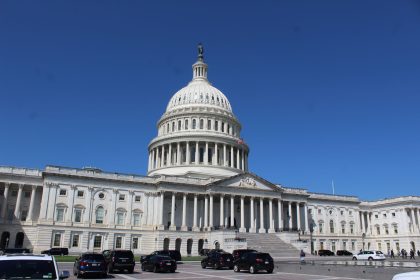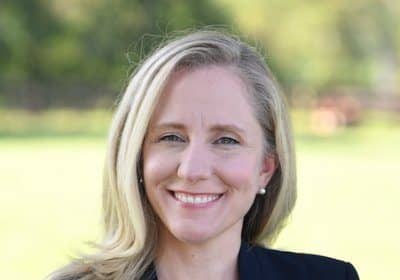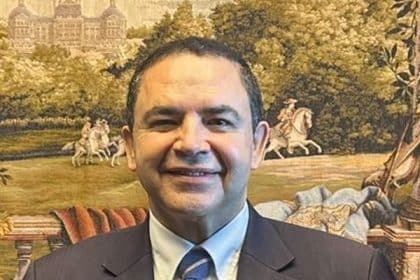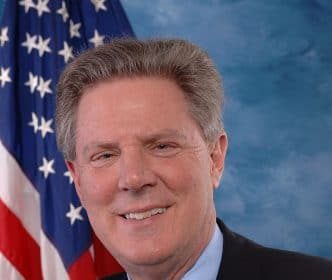Deceased Individuals Received Billions from Government, Legislation to Curb Practice Introduced in House, Senate

This week, U.S. Representatives Cheri Bustos, D-Ill., and Greg Gianforte, R-Mont., reintroduced the bipartisan, bicameral Stopping Improper Payments to Deceased Individuals Act, legislation that would allow all federal agencies access to the Death Master File, a registry maintained by the Social Security Administration that contains the most complete information on individuals who are reported to have died.
A companion bill was introduced in the Senate by Senators Tom Carper, D-Del., and John Kennedy, R-La.
As of now, only a small number of federal agencies have access to this official list, and most federal agencies rely on a slimmed down, incomplete and less timely version of the file.
In fact, most Inspectors General lack access to complete death information. Without the most accurate data, federal agencies mistakenly make payments to people who are actually deceased.
The legislation is based on recommendations and findings by federal agencies’ Inspectors General, recommendations from the Government Accountability Office and testimony at Congressional hearings examining the challenges of improper payments to deceased individuals.
Improper payments are a longstanding problem across the federal government with GAO reporting estimates of more than $141 billion in improper payment in fiscal year 2017 alone. One source of improper payments comes from ongoing payments to deceased individuals.
According to GAO Reports, a total of $601 million in improper payments were made from 2006 to 2010 to federal retirees later found to have already died and more than $1 billion in farm payments to farmers who were dead for more than three years. Additionally, Medicare prescription drug plans were paid approximately $3.6 million for drugs provided to 1,500 dead beneficiaries.
The Stopping Improper Payments to Deceased Individuals Act will do the following:
- Allow Federal Agencies Access to the Complete Death Database: Under current law, only federal agencies that directly manage programs making beneficiary payments have access to complete death data. This legislation would allow all appropriate federal agencies to have access to complete death data for program integrity purposes, as well as other needs such as public safety and health.
- Require Use of Death Data to Curb Improper Payments: The bill requires the Office of Management and Budget (OMB) to issue guidance to agencies on the use of death data to curb improper payments. OMB would also be required to develop plans on how to improve federal data sharing with state and local agencies. This could save hundreds of millions of dollars in improper payments.
- Improve Death Data: The legislation would establish procedures to ensure more accurate death data. For example, the bill requires the SSA to screen for “extremely elderly” individuals. This is in response to a 2015 Inspector General Report that identified 6.5 million individuals currently listed as being older than 112 years of age as still alive.
“We owe it to the American people to be good stewards of taxpayer dollars,” Representative Bustos said. “Cutting checks to deceased people is one of the most glaring examples of government waste and that’s why it’s crucial our federal agencies have access to the most up-to-date information available to prevent this from occurring in the future. I’m proud to work across the aisle to introduce this commonsense solution to crack down on waste, fraud and abuse of tax dollars.”
“The federal government makes billions of dollars in improper payments each year, including Social Security payments to deceased beneficiaries. We must give the Social Security Administration and other agencies more tools to ensure taxpayers aren’t sending checks to dead people,” Representative Gianforte said. “This bipartisan bill will cut unnecessary red tape in the federal bureaucracy to reduce waste, fraud, and abuse as well as protect taxpayer money.”
“As government officials, one of our most important responsibilities is to be good stewards of taxpayer dollars,” said Senator Carper. “That’s why, for years, I have worked across the aisle to assess federal government spending and eliminate billions of taxpayer dollars in waste, fraud and abuse. But there is still work to be done because we know that year after year, the federal government continues to mismanage billions of dollars through improper payments. Today, I’m proud to join Senator Kennedy to re-introduce the Stopping Improper Payments to Deceased People Act which would provide federal agencies with the most up-to-date data they need to prevent improper payments to deceased people. The money saved by these efforts can be put to good use, like funding health care programs or investing in our decades-old infrastructure. With a little hard work and bipartisanship, we can take the common sense steps necessary to reduce improper payments and put these funds to better use for the American people.”
“It’s pretty simple: We need to stop paying dead people. Taxpayer dollars are precious. They’re almost as precious as a newborn baby,” said Senator Kennedy. “A Louisiana man was just indicted for neglecting to tell Social Security that his sister died. He pocketed more than $30,000 in her disability benefits before he was caught. Unfortunately, this type of fraud happens more than you’d think. Our bill will give the federal government added tools to ensure that dead people aren’t receiving taxpayer-funded benefits.”
























